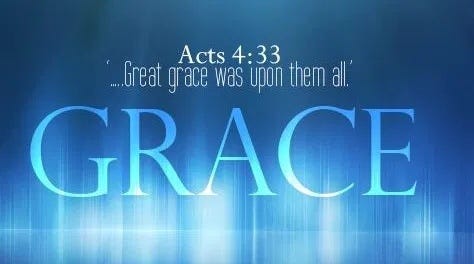A Defense of Grace, Predestination, and the Permission of Venial Sin
Summary Version
The free consent of the will [FCOW] is essential to being human. The will & intellect are inseparable in human volition.That capacity always operates the same way. The will just responds – as it will – to info at hand. So, God doesn’t interfere with our volitional mechanics. It’s the information available to the intellect that God can & does change.
However, while some essential aspect of the intellect would be fallible for some value-realizations, both temporal, e.g. secondary beatitudes and eternal, e.g. epectasy, an essential infallible aspect of the intellect clearly predominates on our journey, specifically regarding what are real (not apparent) goods & Who God really is.
Extended Version
The free consent of the will [FCOW] is essential to being human. The will & intellect are inseparable in human volition.
A fallible intellect can be essential to being human for some value-realizations, especially secondary beatitudes, even eternally so, e.g. for epectasy, as it seems integral to how we enjoy any appropriation of novelty (expand theophanic breadth & aesthetic scope) per an aesthetic teleology.
It seems indispensable to our co-self-determinate soul-crafting as we appropriate a combination of vocations, communal charisms, personal spiritual gifts, missions & such as we grow in uniqueness & authenticity.
While a fallible intellect vis a vis our primary beatitude, clearly, is ordinarily how we journey, theotically, it can’t be essential to human nature since, the fact is, an infallible intellect – vis a vis real (not apparent) goods & Who God really is – predominates, eternally, on our journey, epectatically.
In my view, then, it’s God’s sovereign prerogative & gratuitous determination as to whether or not, how, when & to what degree a person’s intellect will be illuminated with respect to visions beatific.
Spontaneous & precipitous illuminations of the intellect, however, do not entail foreclosures on human volition. How could they? We’d be nothing but robots, post-mortem! What would happen protologically, historically or eschatologically wouldn’t change how volition functions. The will would simply be presented new information by the intellect and could still, metaphysically, assent, refuse or be still (quiescent) but, with no reason not to follow its natural inclinations, the rational person would assent, lacking any apparent reason not to.
That capacity, as described above, always operates the same way. The will just responds – as it will – to info at hand.
So, God doesn’t interfere with our volitional mechanics. It’s the information available to the intellect that God can & does change.
(It’s not to say that I’m not open to some quasi – Báñezian ideas vis a vis a limited set of efficient causal mechanics in certain circumstances.)
I do agree that God made all rational creatures “able not to sin” or “able to move toward Him” or “able to cooperate with & not refuse grace.”
As per my account of volitional mechanics, above, God saw that it was fitting to make wo/man in the divine image, so God wouldn’t create us with a violable will.
Couple that with my belief that God has indeed predestined some to higher degrees of sanctity, has gifted some with contemplation via infused graces, has extended to Mary the benefits of redemption across spacetime and has gifted others Taboric-like illuminations, Damascene-like conversions & Annunciation-like apparitions, still others physical healings, all manner of Providential interventions, signs, wonders & healings, all via efficacious graces.
Wouldn’t these likely raise theodicy-like questions and preterition-like concerns for many? Not wholly unrelated to – why efficacious graces for some but not all? Why was Mary immaculately conceived but not all?
Those all reduce, don’t they, to: If a heaven of freedom, impeccability & well being is actual, why, then, bother with a world of freedom, peccability & ill being? And, it’s implicit: How can that be fitting & just?
Those questions are undecidable. They won’t finally yield to either a logical defense or an evidential theodicy. They require a narrative freighted with the aesthetically qualitative & ethically felt aspects of a personal trust relationship.
Considering what’s at stake and Who’s involved, the story would have to be the Greatest Story Ever Told.
It all boils down to what Hans Küng described as a choice between a justified fundamental trust in uncertain reality and a nowhere anchored paradoxical trust in uncertain reality. And I add: trust in a Person.
Would this satisfy иван карамазов?
I couldn’t say.
These problems are already hard enough, practically, logically & evidentially, sometimes leaving many hanging by an existential thread. Add the doctrine of hell and, for many, the problems of the Abrahamic God become insurmountable.



